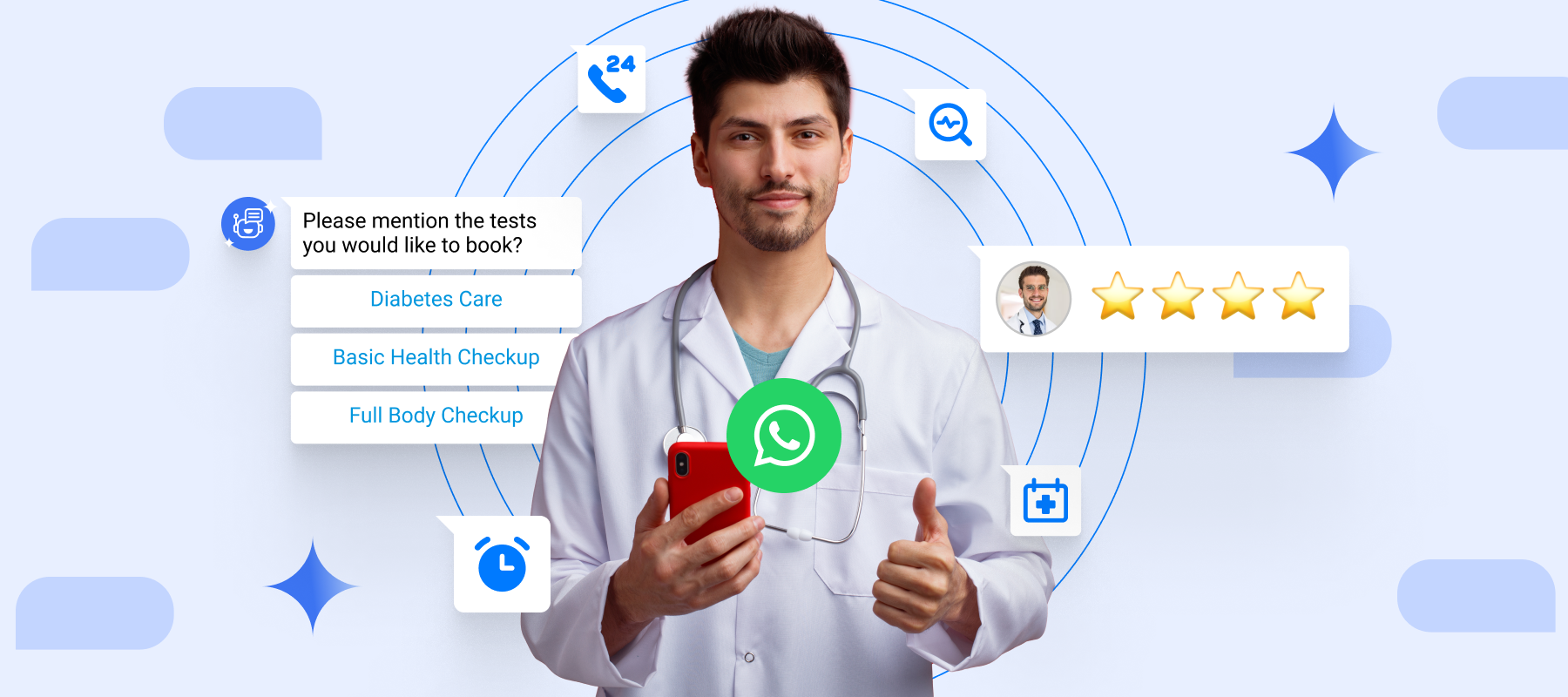Introduction
The healthcare sector has been at the forefront of technological innovation, embracing solutions like telemedicine, wearable devices, and AI-driven diagnostics. With the growing reliance on digital platforms, patients now expect seamless communication, real-time updates, and personalized care. WhatsApp, with its widespread reach and real-time capabilities, presents an incredible opportunity for healthcare providers to bridge communication gaps and deliver superior patient experiences.
WhatsApp chatbots enable healthcare organizations to automate and optimize processes such as appointment scheduling, medication reminders, and patient support. In this blog, we will delve into the benefits of WhatsApp chatbots for healthcare, explore their practical use cases, and share implementation tips for success.
How WhatsApp Chatbots Are Transforming Healthcare
The integration of WhatsApp chatbots in healthcare has revolutionized how providers engage with patients and manage operations. Let’s examine the key benefits:
24/7 Patient Support
Healthcare needs to be available at all times. WhatsApp chatbots ensure that patients can access information and support round the clock. Whether it’s booking appointments, addressing follow-up queries, or providing post-discharge instructions, chatbots are there to assist patients in real-time.
Personalized Engagement
From tailored health tips to reminders for medication or follow-up visits, WhatsApp chatbots offer a personalized touch to patient communication. This not only builds trust but also enhances adherence to treatment plans, leading to better health outcomes.
Efficient Resource Allocation
By handling repetitive tasks like answering FAQs, scheduling appointments, and triaging patient concerns, WhatsApp chatbots free up valuable time for healthcare staff. This allows professionals to focus on complex cases and provide better care.
Seamless Integration
Modern chatbots can integrate with Electronic Health Records (EHR), appointment systems, and other healthcare tools, ensuring smooth workflows and accurate data management. This eliminates manual errors and enhances operational efficiency.
Secure Communication
Given the sensitivity of healthcare data, WhatsApp chatbots offer encrypted messaging to safeguard patient information. Compliance with regulations like HIPAA and GDPR ensures the highest standards of privacy and security.
Best Practices for Implementing WhatsApp Chatbots in Healthcare
To maximize the impact of WhatsApp chatbots, healthcare providers should focus on the following:
Define Objectives Clearly
Identify the specific challenges you aim to solve, such as reducing patient wait times, improving medication adherence, or streamlining appointment booking. Clear goals ensure the chatbot aligns with organizational priorities.
Prioritize Security
Healthcare data is highly sensitive. Ensure that the chatbot adheres to regulatory standards and uses encryption to protect patient information. Obtain explicit consent for data collection and usage.
Make It User-Friendly
Design an intuitive chatbot interface that patients can easily navigate. Include quick-reply buttons, simple language, and clear instructions for tasks like booking appointments or accessing lab reports.
Offer Multilingual Support
To cater to diverse patient demographics, enable the chatbot to communicate in multiple languages. This enhances accessibility and ensures inclusivity.
Monitor and Optimize
Continuously track chatbot performance through analytics and patient feedback. Use this data to refine responses, add new features, and improve overall functionality.
Use Cases for WhatsApp Chatbots in Healthcare
Here are some practical ways healthcare providers can leverage WhatsApp chatbots:
Appointment Management
WhatsApp chatbots simplify appointment scheduling by allowing patients to view available slots, book appointments, and receive reminders. This reduces no-shows and enhances resource utilization.
Medication Reminders
Chatbots can send automated reminders for taking medication, refilling prescriptions, or attending follow-up visits. This ensures better adherence to treatment plans.
Health Monitoring
Patients can report symptoms or side effects via the chatbot, enabling real-time monitoring by healthcare providers. This proactive approach ensures timely intervention and improved care.
Preventive Health Campaigns
Healthcare providers can use chatbots to promote preventive measures like vaccinations, health screenings, and wellness programs. Personalized messages encourage patients to take proactive steps for their health.
Multilingual Communication
Chatbots with multilingual capabilities break language barriers, enabling patients to communicate in their preferred language. This is especially valuable in linguistically diverse regions.
Conclusion
WhatsApp chatbots are transforming the healthcare landscape by making services more accessible, efficient, and patient-centric. From 24/7 support to personalized engagement, these chatbots address critical challenges while improving operational efficiency. By adopting WhatsApp chatbots, healthcare providers can stay ahead in delivering exceptional patient care in today’s digital-first world.



